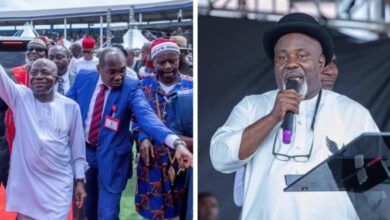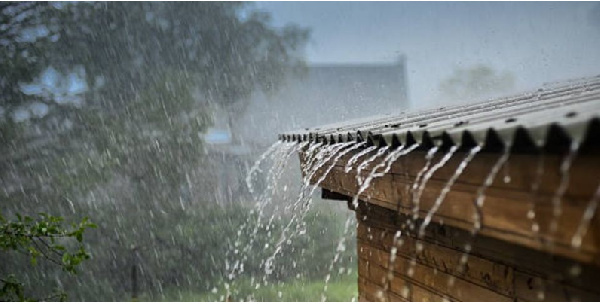The wealthy but simple Nigerian merchant behind Dangote’s success story

Africa’s richest man, Aliko Dangote’s great grandfather, Alhassan Dantata, was a trader from Northern Nigeria who traded mainly in kola nuts and groundnuts. His distribution pool extended far into Europe and at the time of his death, he was the richest man in West Africa. But what exactly was the story behind Alhassan Dantata?
Although Dantata was one of the wealthiest men in the British West African colonies, he lived a simple life. He fed on the same foodstuffs as any other individual.
He dressed simply in a white gown, a pair of white trousers and underwear, a pair of ordinary local sandals and sewn white cap, white turban and occasionally a malfa (local hat).
He was said to have never owned more than three sets of personal clothing at a time. He never stayed inside his house all day and was always out doing something.
He moved about among his workers, joking with them, encouraging and occasionally giving a helping hand. He ate his meal outside and always with his senior workers.
Dantata was born in Bebeji, Kano Emirate in 1877, as one of the several children of Abdullahi and his wife, Amarya. Dantata’s father was Abdullahi, a man from the village of Danshayi, near Kano. Both of his parents were wealthy Agalawa, a hereditary group of long-distance traders in the Hausa empire.
Upon the death of his father in Bebeji around 1885, and being too young to manage their father’s considerable wealth, each child was given their portion of his wealth according to Islamic law, nonetheless.
Amarya, Alhassan’s mother, was a trader of wealth in her own right, just like her mother. After her husband’s death, she decided to leave Bebeji for Accra in the then Gold Coast (Ghana) where she had commercial interests.
The journey to Accra, which was to last for several weeks, forced her to leave her children behind, in the care of an old slave woman named Tata.
The young Alhassan became known as Alhassan Dantata because of Tata’s role and influence in his life as his “mother” (“Dan-tata” means “son of Tata” in the Hausa language).
Dantata attended a Qur’anic school (madrasah) in Bebeji. In no time, it seemed his share of his father’s wealth had vanished and he needed to support himself. As an almajiri (Qur’anic student), he also had a responsibility of finding food and clothing for himself, as well as, for his malam (teacher). In all these, he needed to make enough time to study.
For some, they simply begged while others sought paid work. Dantata worked, as was the tradition for a young Agalawa. He succeeded at the insistence of Tata in saving. His asusu, a “money box” (a pottery vessel) purchased by Tata, still exists in the walls of the house.
Dantata was still a teenager when the great upheavals occurred in the Kano Emirate from 1893 to 1895. There were two claimants to the Kano Emirate when Emir Muhammad Bello died in 1893.
In the moments of the war, Yusufu forces, one of the claimants, were victorious over Tukur, son of Emir Bello, claiming the title of emir. Because of the Agalawa support of Tukur, Dantata and the other Agalawa had their property confiscated and many were captured.
Dantata and his brothers were held for ransom, under the threat of slavery. Through hard work and perseverance, they were able to pay off their debt and Dantata returned to the trading business without his family lands around Kano.
Probably after being freed from slavery around 1894, Dantata joined a Gonja-bound caravan to see his mother. He purchased some items in Bebeji, sold half of them on the way and the rest in Accra. He might have hoped his wealthy mother would allow him to live with her and find him work among the Gold Coast Agalawa community.
However, this did not happen. After a rest of only one day, she took him to a mallam and asked Dantata to stay there until he was ready to return to Bebeji. Dantata worked harder in Accra than he did in Bebeji. After the usual reading of the Qur’an, he had to go and beg for food for his mallam and himself.
He worked for money on Thursdays and Fridays. As was the tradition, the bulk of his earnings went to his mallam. At some point, he returned to Bebeji to his religious studies and work. There, Tata continued to insist that he must save something every day.
Dantata decided to trade in long-distance trading but he remained in Bebeji until matters had settled down. Like his father, he preferred the Nupe and Gonja routes. He used the new trade routes to Ibadan and Lagos to develop his network of trading associates.
He specialized in the exchange of Kano dyed cloth, cattle, slaves and so on for the kola of the Akan forest. Surprisingly, he had added cowries brought to the coast by European traders to the items he carried back to Kano.
Instead of bringing kola nuts on pack animals, he used steamships to transport them between Accra, Kumasi, Sekondi (all in Ghana) and Lagos. He was the first to develop this route. This innovation and contact with Europeans helped establish his wealth and future. He supplied large British trading companies with raw materials and also had business interests in the Gold Coast.
In 1906, he began broadening his interests by trading in beads, necklaces, European cloth, and trade goods. Around 1908, his mother, who had never remarried, died in Accra.
After her death, he focused his attention on new opportunities in Lagos and Kano. For example, he built up his trade in kola nuts and eventually whole “kola trains” to Northern Nigeria were filled with his kola nuts.
Dantata maintained a house in Bebeji and had no property in the larger trading town of Kano. He did not own a house there, but was satisfied with the accommodation given to him by his patoma (landlord).
When the British deposed the successor of Yusufu in 1903, they appointed Abbas as the Emir of Kano. As part of a recompilation, Abbas returned the confiscated lands around Kano to the Agalawa families. Dantata built his first house in the then empty Sarari area (an extension of Koki) in Kano.
He married Umma Zaria, and, as was the tradition, she conducted business for him with women of Kano.
By all accounts, Dantata was hard working, frugal and unpretentious in his personal habits. He was also a good financial manager. He had the good sense to employ Alhaji Babba Na Alhassan who served as his chief accountant and Alhaji Garba Maisikeli as his financial controller for 38 years. Dantata did not manage from behind a desk but involved himself with his workers.
In 1912, when the Europeans started to show an interest in the export of groundnut, they contacted the already established Kano merchants through Emir Abbas and their chief agent, Adamu Jakada. Some established merchants of Kano like Umaru Sharubutu, Maikano Agogo accepted their offer.
Dantata was already familiar with the manner by which traders could make fortunes by buying cocoa for Europeans in the Gold Coast. He had several advantages over other Kano businessmen: language, wealth and age. He could speak some English and already had direct dealings with Europeans in Lagos and Accra. And besides, he had substantial amounts of capital.
Unlike other established Kano merchants, he was in his mid-thirties, with a small family and retinue to support. Despite the famine in Kano in 1914, he quickly dominated the groundnut purchasing business via promotions, loans and contacts.
In 1918, the UK-based Royal Niger Company (later became the United Africa Company, U.A.C) searched for an agent to purchase groundnuts for them, and Dantata responded to their offer.
Unconfirmed accounts say that he used to purchase about half of all the nuts purchased by the United Africa Company in northern Nigeria.
By 1922, Dantata had become the richest businessman in Kano, surpassing other merchant traders. In 1929, when the Bank of British West Africa opened a branch in Kano, Dantata placed 20 camel-loads of silver coins in it, becoming its first customer. (For religious reasons, his money collected no interest). Shortly before his death, he pointed to sixty “groundnut pyramids” in Kano and said, “These are all mine”.
Dantata applied for a licence to purchase and export groundnuts in 1940, on the same level as the United Africa Company. However, it was not granted because of worldwide military and economic conditions. In 1953–54, he became a licensed buying agent, which allowed him to sell directly to the Nigerian Groundnut Marketing board instead of another firm.
He had many business connections both in Nigeria and in other West African countries, particularly the Gold Coast.
Dantata was also famous for making a pilgrimage (hajj) to Mecca via boat in the 1920s. Dantata financed the pilgrimages of other Muslims to Mecca, a tradition that continues among his descendants.
His son, Alhaji Aminu Dantata and his grandchildren such as Hajiya Mariya Sunusi Dantata, as well as, his great-grandchildren like Aliko Dangote still finance pilgrimages of other Muslims to Mecca every year.
In 1955, Dantata fell ill. Because of the seriousness of his illness, he summoned his chief financial controller, Garba Maisikeli and his children. He told them that his days were approaching their end and advised them to live together. He was particularly concerned about the company he had established (Alhassan Dantata & Sons). He asked them not to allow the company to collapse.
Three days later he died in his sleep on Wednesday, August 17, 1955. He was buried in his house in the Sarari ward.
Author: Etsey Atisu





